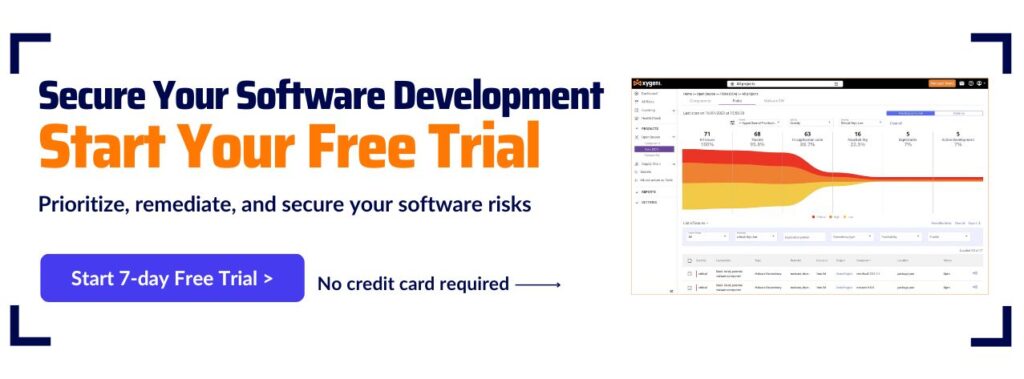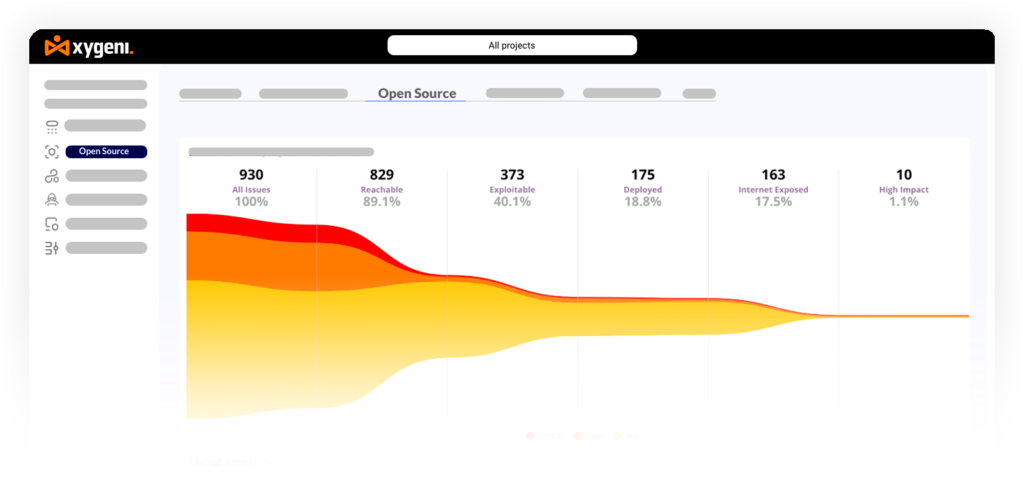What is Secret Leakage?
Secret leakage, also known as “leak secrets” or “secret exposure,” is the unauthorized disclosure of confidential information, such as API keys, passwords, and private certificates. It can happen through a variety of means, including human error, misconfigured systems, and malicious attacks.
The concept of secret leakage originated in the early days of cryptography when researchers began to study how sensitive information could be accidentally or intentionally exposed. However, the term “secret leakage” did not become widely used until the late 20th century, when it began to be used to describe the security risks associated with the increasing use of digital information and communication technologies.
The first known attack occurred in 1982 when a group of hackers stole the encryption keys used to protect classified US government data. This attack, This attack, known as VENONA, led to a major overhaul of the government’s security policies and procedures, and it also helped to raise awareness of the importance of protecting sensitive information.
The expansion of cloud services, continuous integration, and delivery (CI/CD) practices, and the proliferation of open-source code have increased the probability for secrets to be accidentally hardcoded into public repositories. Now let’s start with the usual causes that produce secrets leakage. Keep reading!
Causes of Secrets Leakage Attack
Several causes can produce a leak secret attack, including:
- Human error: Human error is the most common cause of secret leaks. For instance, a developer may accidentally commit confidential information to a public code repository.
- Misconfigured systems: Systems that are not properly configured can expose secrets, such as API keys and passwords, to unauthorized users. For example, a web server that is not properly configured may allow attackers to view the contents of its configuration files, which may contain secrets.
- Malicious attacks: Malicious actors can also use a variety of methods to steal secrets, such as social engineering attacks, phishing attacks, and malware attacks. For example, an attacker may email an employee posing as a legitimate IT support representative and trick the employee into revealing their credentials. In fact, 83% of data breaches in 2022 involved internal actors regarding Verizon research.
- Weak security policies and procedures: Organizations may not have strong security policies and procedures in place to protect secrets. For example, an organization may not require employees to use strong passwords or to enable multi-factor authentication. For instance, 81% of confirmed breaches were due to weak, reused, or stolen passwords in 2022, following the LastPass report.
- Neglect: Organizations may neglect to secure their systems and data properly, making it easier for attackers to steal secrets. For example, an organization may fail to install security patches or keep its systems updated.
- Lack of awareness: Employees may not be aware of the risks of exposing secrets, or they may not know how to protect them properly. For instance, 90% of cyber attacks entail social engineering tactics.
Impact of secret leakage attacks
Secret leakage attacks can have a severe and far-reaching impact on organizations. Organizations that experience secret leakage attacks may face the following negative consequences:
- Compromise of software development tools and infrastructure: Attackers can compromise software development tools and infrastructure, such as source code repositories, build systems, and CI/CD pipelines, to embed malicious code into software products without being detected. This code can then be deployed to customers’ systems, giving the attackers a backdoor into their networks.
- Poisoned Pipeline: Attackers can compromise the software supply chain of a vendor to poison the organization’s products with malicious code. This code can then be unknowingly installed by the vendor’s customers, giving the attackers access to their systems.
- Data breaches: Secret leakage attacks can lead to the exposure of sensitive data, such as customer records, financial information, and intellectual property. This data can then be stolen and used for fraudulent purposes, or it can be publicly released, damaging the organization’s reputation.
- Disruption of operations: Attackers can gain access to critical systems, such as production servers or databases, to disrupt or even shut down operations. This can lead to significant financial losses and reputational damage.
- Intellectual property and private information theft: Attackers can steal secrets, such as source code or trade secrets, to develop competing products or steal a company’s competitive advantage. This breach can have far-reaching implications if an attacker successfully steals sensitive information, such as access tokens or API keys, from the SCM. With these stolen credentials, attackers can gain unauthorized access to production systems, potentially leading to more severe security incidents. They could access private data, manipulate system operations, or exfiltrate confidential information, jeopardizing not only the integrity of the system but also the privacy and trust of users.
- Financial losses: Data breaches, including those originating from secret leakage attacks, can lead to significant financial losses for organizations. The cost of responding to a secret leakage attack includes investigating the incident, remediating the vulnerability, and notifying affected individuals. Organizations may also face fines and other penalties from regulators if they fail to adequately protect their secrets. For example, under GDPR law in the EU, organizations can be fined up to 20 million euros or 4% of their global turnover, whichever is higher, for the most serious violations. In the US, many privacy laws at the federal and state levels establish administrative remedies or civil penalties for non-compliance that can range from $100 to $50,000 per violation, with a total of $25,000 to $1.5 million for all violations of a single requirement in a calendar year.
- Reputational damage: Secret leakage attacks can damage an organization’s reputation. Customers and investors may lose trust in the organization’s ability to protect their data and privacy. This can lead to a loss of business and make attracting new customers and investors more difficult.
- Regulatory scrutiny: Not protecting potential vulnerabilities, including the risk of secret leakage attacks, can attract the attention of regulators who may investigate the incident and impose fines and other penalties on the organization. This can lead to increased costs and compliance burdens. For example, the Securities and Exchange Commission (SEC) recently investigated the SolarWinds cyberattack and charged SolarWinds Corporation with fraud and internal control failures related to allegedly known cybersecurity risks and vulnerabilities.
Real-World Examples of Leak Secrets Attacks
Data breaches caused by stolen credentials are the most common type of data breach, and this has been the case since 2021, according to the IBM Cost of a Data Breach Report 2022. Secret leakage attacks can also have a devastating impact on organizations, with the global average cost of a data breach reaching $4.35 million in 2022, regarding Verizon’s 2022 Data Breach Investigations Report (DBIR):
Here is a brief summary of some secret leakage attacks recorded in recent years:
- In January 2023, GitHub disclosed a data breach wherein attackers successfully pilfered the code-signing certificates for several versions of GitHub Desktop and Atom. The investigation revealed that the perpetrator(s) gained access to a GitHub internal system, enabling them to clone specific repositories and illicitly acquire the code-signing certificates. This incident underscores the critical importance of robust security protocols for safeguarding code-signing certificates and emphasizes the necessity for developers to adhere to best practices in secrets security to mitigate the risk of future similar events.
- In March 2023, GitHub encountered a significant supply chain attack. A mistakenly made public commit exposed the private SSH key for GitHub’s service. This incident provided an opportunity for an attacker to convincingly mimic GitHub, presenting a profound deception and posing a considerable security risk. However, GitHub promptly addressed the situation and replaced their key as a precautionary measure.
How To Prevent Leak Secret Attacks
There are a number of steps that organizations can take to prevent those attacks, including:
- Educate employees about the risks of secret leakage and how to protect secrets. Employees should be aware of the different types of secret leakage attacks and how to identify and avoid them. They should also be trained on how to properly store and manage secrets.
- Implement strong security controls. Organizations should implement strong security controls, such as firewalls, intrusion detection systems, and access control lists, to protect their systems and data from unauthorized access. They should also use a secret management tool to store and manage secrets securely.
- Utilize a scanning tool to detect secrets before committing them to repositories or deploying them in CI/CD pipelines or IaC configurations. This provides developers and DevOps with instant feedback, preventing secrets from entering the version history or production infrastructure.
- Monitor systems and networks for suspicious activity. Organizations should scan their systems and networks for suspicious activity that could indicate a secret leakage attack.
- Have a plan in place for responding to secret leakage attacks. If a secret leakage attack is detected, organizations should have a plan in place for responding quickly and effectively. This plan should include steps for containing the damage, mitigating the impact, and investigating the incident.
How Xygeni Helps to Avoid Secret Leakage
Xygeni Secrets Security is a comprehensive solution that goes beyond simply protecting secrets to ensure the continuity, security, and resilience of the modern Software Supply Chain. It is not just a detection tool, but a commitment to a zero-hardcoded-secrets policy, achieved through a series of standout features that proactively secure the software development lifecycle.
Key Benefits and Features Xygeni Secrets Security
Xygeni Secrets Security offers a number of key benefits and features, including:
- Real-time detection and prevention: Xygeni integrates with Git hooks to scan and detect secrets before they are committed to repositories. This provides developers with instant feedback and prevents secrets from entering the version history.
- Comprehensive scanning: Xygeni’s scanning capabilities extend beyond conventional pattern matching to recognize and validate a wide range of secret formats, regardless of language, library, or platform.
- Intelligent validation: Xygeni’s intelligent validation process minimizes false positives, ensuring that developers only receive notifications for verified vulnerabilities.
- Seamless developer experience: Xygeni’s non-intrusive solution enhances the developer experience with a WebUI that provides actionable insights and enables developers to learn and adopt security best practices in real time.
- Policy enforcement and continuous monitoring: Xygeni’s defensive architecture allows organizations to enforce strict security policies across the development lifecycle and to quickly identify and address any deviations.
By addressing the root causes of secret leakage and providing a comprehensive solution that integrates security into the development process, Xygeni helps organizations protect their secrets from unauthorized access.
Here are some specific examples of how Xygeni can help organizations prevent secret leakage:
- Developer commits API keys to a public code repository: Xygeni’s Git hook integration detects the API keys before they are committed and halts the commit, preventing the exposure of secrets.
- The attacker exploits a vulnerability to gain access to configuration files: Xygeni’s comprehensive scanning detects sensitive data in the configuration files and alerts the organization, enabling it to remediate the vulnerability and prevent the attacker from stealing data in case of exploitation.
Xygeni’s approach to hard-coded secret detection is a critical tool for any organization that wants to protect its secrets from unauthorized access. By implementing Xygeni, organizations can reduce their risk of experiencing a secret leakage attack and protect their data from theft.
If you need more information about Leak Secret Attacks and how to prevent them, ask for a meeting with our team and they will resolve all your doubts.









